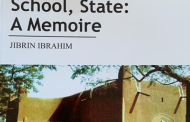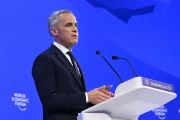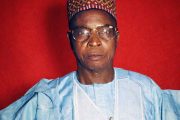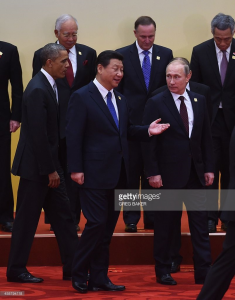Intervention is still not out of trouble with the establishment of Nigeria’s People’s Redemption Party (PRP). Earlier today, Prof Attahiru Jega, a party mandarin, disagreed with the inference that the party might be moving from radical populism to radical pluralism because of the diverse symbolisms that will mark the 40th anniversary of late Mallam Aminu Kano. Or, better still, Jega rejected any intertextual reading of the invitation to that event as to connect Mambayya House, the Bayero University, Kano research centre putting together the lecture and the PRP.
 Alhaji Falalu Bello, National Chairman, PRP Now, it is the National Chairman, Alhaji Falalu Bello who has sent a protest note on a different aspect of the reporting of the impending lecture. The chairman’s protest is reproduced below: We read you a lot and respect Intervention’s intellectualised insights but on this PRP write-up, I differ with you in a number of areas. Happily, Prof. Attahiru Jega, a stakeholder in the PRP, has addressed one of my areas of concern in his own rejoinder. My second area of concern is on 2023 General Elections. You may not appreciate these facts about the PRP on the elections: (1) That it is the first time in 40 years that PRP has fielded a presidential candidate and the first in its history that it fielded a Southerner with a Northern minority as his Vice-President and these are by a party historically considered a Northern Hausa Fulani party. And in this presidential election, PRP came 8th out of 18 national political parties; (2) PRP fielded a total of 716 candidates in all the 36 states of the Federation and the FCT, its highest in its history; (3) By what it did in 2023 General Elections, PRP has ceased to be a defacto regional party but a defacto and dejure national political party; (4) On performance of PRP and the so called smaller parties in the 2023 General Elections, some analysis should, no matter how short, be done on these elections as only the two evil sisters (APC and PDP) did well because they both have access to state funds which they used to buy votes which we all (including you) witnessed. In fact, the two parties were competing with each other in particularly the gubernatorial and state assembly elections at the expense of state treasuries. In Katsina State, for example, the cost that APC paid per vote was much higher than PDP, resulting in APC “winning” 33 State Assembly seats out of 34 in the first round. As an intellectual journalist, we would want you, when the dust settles and you can access results from INEC Server, to please do an intellectually balanced report on performance of PRP and why it did not do well like almost all small parties save NNPP and LP and you can tell us why they did well. Falalu Bello , National Chairman, PRP |





























1 Comments
Abdullah Musa
A lot of of water has passed under the bridge since PRP made its debut in 1978.
In 1979 it had two governors, with Balarabe Musa later being impeached by NPN-controlled Kaduna State Assembly.
Aminu Kano was able to resonate well with the Talakawa, while Rimi was able inspire the youths.
Balarabe Musa was a good, honest man, but he didn’t have the appeal when he contested for governorship again after his impeachment.
If Falalu Bello would be honest to himself, the question to ask is: what qualified him to lead PRP save for the fact that his father associated with Balarabe Musa in NEPU?
Falalu Bello is an Establishment man, made enough hay from the Establishment, and can thus not speak for, nor arouse the Talakawa.
Kwankwaso built a cult-like followership from 1999 to date. A PRP gubernatorial candidate stood no chance against his candidate.
LP was used by religious and ethnic bigots to appeal to the bigoted, and Southern youths were brainwashed to believe Peter Obi is closer to them in age.
It is possible in the future that a charismatic politician would infuse new life into PRP to enable it win elections.
But I doubt if that politician would be Falalu Bello.